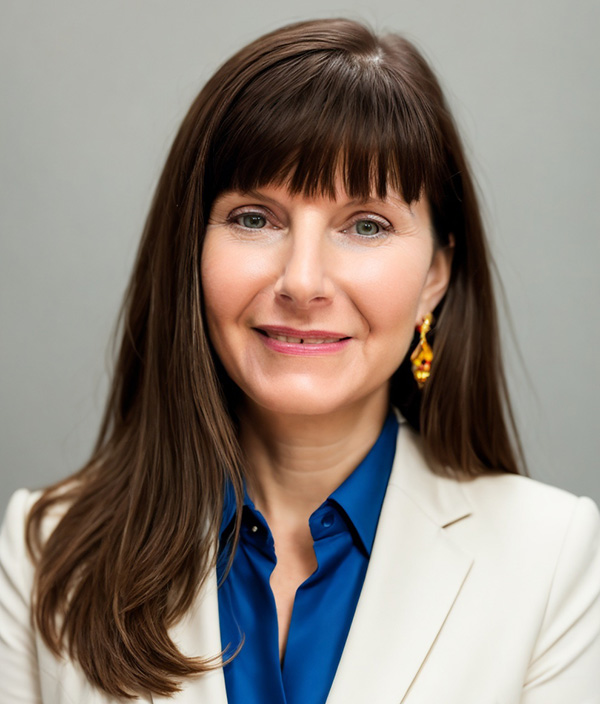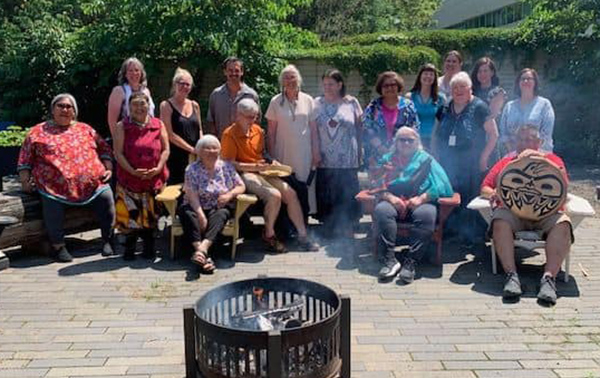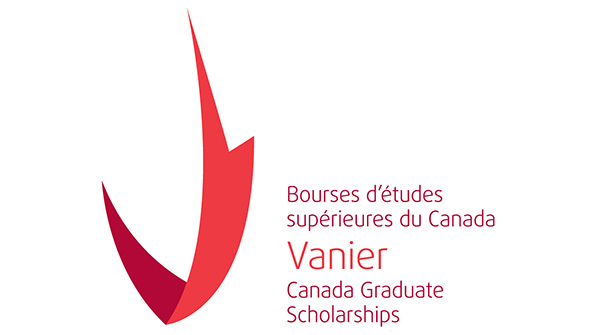 About being a Vanier Scholar
About being a Vanier Scholar
What does receiving a Vanier Scholarship mean to you?
Receiving this Vanier Scholarship is a tremendous reminder of my extraordinary mentors who have inspired and guided me throughout my academic journey, as their support and encouragement have been essential in my being chosen for this profound honour. I am deeply grateful for this award as it will allow me to expand my role as a mentor and leader at McMaster University and in the Hamilton community, helping to support me in my continued efforts toward social justice initiatives. The Vanier also allows me the time, resources, and space to dedicate to my doctoral research in collaboration with Six Nations of the Grand River by strengthening my relationships in the community and ensuring that the research process is ethical, meaningful, culturally relevant, and supportive of community-identified needs. This award holds monumental meaning and most definitely brightens my future!
Tell us about your Vanier research.
Indigenous Peoples continue to experience health disparities, including significantly higher rates of sexually transmitted and blood-borne infections (STBBI), as compared to other populations in Canada. Conventional sexual health approaches are not effective for Indigenous communities, which signals the need for culturally rooted approaches to sexual health grounded in the distinct traditions of First Nations, Inuit, and Métis communities. Indigenous cultural approaches offer a holistic vision that includes the physical, cognitive, emotional, and spiritual elements of sexuality.
In collaboration with Six Nations of the Grand River, this research is a community-based, participatory study featuring unique Haudenosaunee cultural approaches to sexual health and well-being. The study will be guided by a community advisory committee of leaders and stakeholders from Six Nations of the Grand River and will begin with an open community engagement session where people will share their ideas on how best to focus this study on addressing the sexual health and well-being research needs of the community. The results of this community session will be used to shape the research framework that will guide the more extensive community-based, participatory study in collaboration with community members. This study will be guided by the Haudenosaunee Two Row Wampum research paradigm developed by Freeman and Van Katwyk (2019) to draw upon culturally relevant responses to sexual health and well-being that benefit the community through allyship and collaboration. This approach has the potential to revolutionize current models of sexual health education and STBBI prevention that often fail to align with Haudenosaunee ways of being and knowing, which hold cultural teachings on sexuality to be sacred and belonging in cultural spaces.
About graduate student life
What inspired you to pursue a postgraduate degree?
My passion for research and scholarly pursuits that serve social justice issues were significant motivators in pursuing my PhD in social work. In addition, my supervisor, Randall Jackson, and several other faculty mentors from McMaster’s School of Social Work, encouraged me. My transformative experiences at the FEAST Centre for Indigenous STBBI Research (McMaster University) and my Master of Social Work research study in collaboration with Indigenous Elders inspired me to pursue my PhD. These exceptional learning experiences motivated me to continue on this journey in community-based, participatory research with First Nations, Inuit, and Métis communities.
Why did you choose to study at McMaster?
McMaster has a vibrant community of scholars, students and researchers from diverse backgrounds and experiences. It is a renowned, research-intensive university that offers rich opportunities to think beyond our individual worlds. Moreover, I wanted to remain a part of the McMaster School of Social Work, a forward-thinking, critical program emphasizing the power of social work research.
What do you love most about your graduate program?

I love the brilliance and passion of the faculty, staff and students in the School of Social Work. I have developed meaningful relationships with many faculty members, including my supervisor and my PhD committee members, Bonnie Freeman and Saara Greene. I am privileged to have a committee with the integrity, knowledge, and research expertise to guide me through this intensive but worthwhile journey. I have also had several opportunities to work with other faculty members and students on fulfilling projects that have deepened my skills, knowledge and insight. And I cannot forget – I love my PhD cohort, who are extraordinary thinkers, leaders and friends. They have been such an invaluable support and source of strength!
What is your favourite thing about McMaster and the broader Hamilton community?
This campus is a lively, energetic, and diverse community of innovative thinkers and doers who care deeply about the Hamilton community and broader global issues. McMaster students are always willing to get involved to support our community. In addition, the Graduate Student Association is a valuable organization that holds fun social and cultural events, provides student support, and advocates for students when needed. Hamilton is my home, and although we have our struggles, there is plenty to love about this city, namely, how people share what little they have to help others in need. There are also enclaves of natural beauty that we can access all over the city and surrounding areas.
When you’re not busy being a graduate student, how do you like to spend your free time?
As a social worker, I love working with people. However, I am also an enormous animal lover who loves spending time in nature with all sorts of creatures. My neighbourhood is home to many community cats living on the street, so I have become increasingly involved in cat rescue and care.
Beyond Grad School
What do you see as the next step in your life journey?
It is not easy to see past graduate school at this point. However, coming this far has strengthened my courage to pursue exciting leadership opportunities that arise in the social work field in academia, research, policy, etc. I also value teaching and mentoring students and hope that remains part of my future. I would also appreciate the opportunity to continue working with Indigenous communities because it has profoundly enriched who I am.

